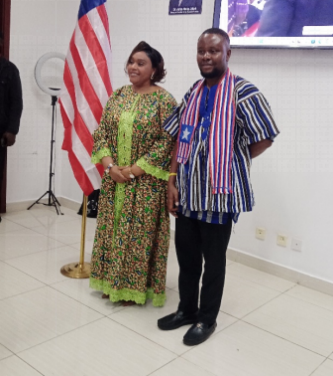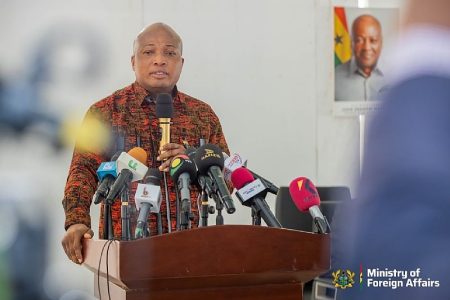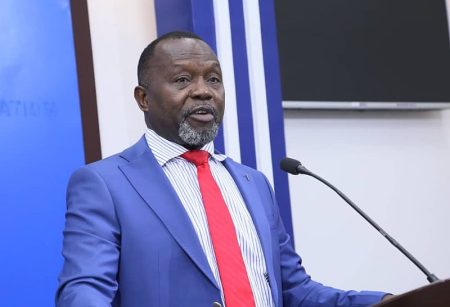The ongoing dispute between Ghana’s Ministry of Communications, Digital Technology and Innovation and MultiChoice Ghana, the operator of DStv, a prominent satellite television service, revolves around subscription fees. Samuel Nartey George, the Minister of Communications, has publicly accused MultiChoice of disrespecting Ghanaians by refusing to lower its DStv subscription prices despite favorable economic conditions in the country. These conditions include the appreciation of the Ghanaian cedi, a decrease in inflation, and lower fuel prices, all of which, according to the Minister, should justify a reduction in DStv’s fees. This disagreement has escalated into a public standoff, with the Minister issuing an ultimatum and MultiChoice defending its pricing structure.
The Minister’s contention stems from his belief that MultiChoice’s pricing decisions do not reflect the current economic realities in Ghana. He argues that the improved economic indicators should translate into lower costs for consumers, including DStv subscribers. He perceives MultiChoice’s resistance to lowering prices as a sign of disregard for Ghanaian consumers, reinforcing his previously held view that the company undervalues its Ghanaian customer base. The Minister’s stance has been amplified through social media, where he has directly addressed the issue and criticized MultiChoice’s response. His ultimatum, demanding a price reduction by a specific date or facing potential sanctions, further underscores his commitment to this issue.
MultiChoice Ghana, on the other hand, maintains that the Minister’s demands are untenable. While acknowledging the positive economic trends, the company argues that these factors alone do not justify a forced price reduction. Their statement highlights the complexities of their pricing model, which they claim is influenced by various factors beyond the scope of Ghana’s domestic economic situation. They argue that their prices are determined by a complex interplay of factors, including international content licensing agreements and operational costs, which are not directly linked to the fluctuation of the cedi or other local economic indicators. They assert that they have engaged with the Ministry and the National Communications Authority (NCA) in good faith, seeking a resolution through dialogue rather than through public pressure or imposed deadlines.
The dispute has been further complicated by comparisons to MultiChoice’s operations in Nigeria. Minister George has pointed out that MultiChoice yielded to similar pressure in Nigeria, reversing price increases after facing legal action and parliamentary scrutiny. He uses this example to bolster his argument that MultiChoice is applying a double standard, treating Ghanaian consumers differently than their Nigerian counterparts. He has also disclosed an alternative proposal offered by MultiChoice, involving maintaining current prices while halting the transfer of revenue to their headquarters. However, he dismissed this suggestion as illogical, arguing that it fails to address the fundamental issue of fair pricing for Ghanaian subscribers. He emphasizes that the core objective is to ensure that Ghanaians are charged a reasonable price for the service, a goal he believes the proposed alternative does not achieve.
The crux of the disagreement lies in the differing perspectives on pricing fairness and the factors that should influence it. The Minister champions the cause of the consumer, advocating for price adjustments that reflect local economic improvements. He views MultiChoice’s stance as unresponsive to the needs of Ghanaian subscribers and potentially exploitative. MultiChoice, in contrast, emphasizes the complexities of its international business model and the various cost considerations that inform its pricing decisions. They argue that a simplistic approach based solely on local economic indicators overlooks the broader economic realities of operating a multinational satellite television service.
This dispute highlights the challenges of regulating multinational corporations operating in developing economies. While governments strive to protect consumers and ensure fair pricing within their borders, these companies often operate within complex global frameworks that can make localized price adjustments difficult. The clash between national interests and international business practices creates a delicate balancing act, requiring careful negotiation and a thorough understanding of the economic factors at play. The outcome of this dispute will likely set a precedent for future interactions between the Ghanaian government and multinational companies operating in the country.














